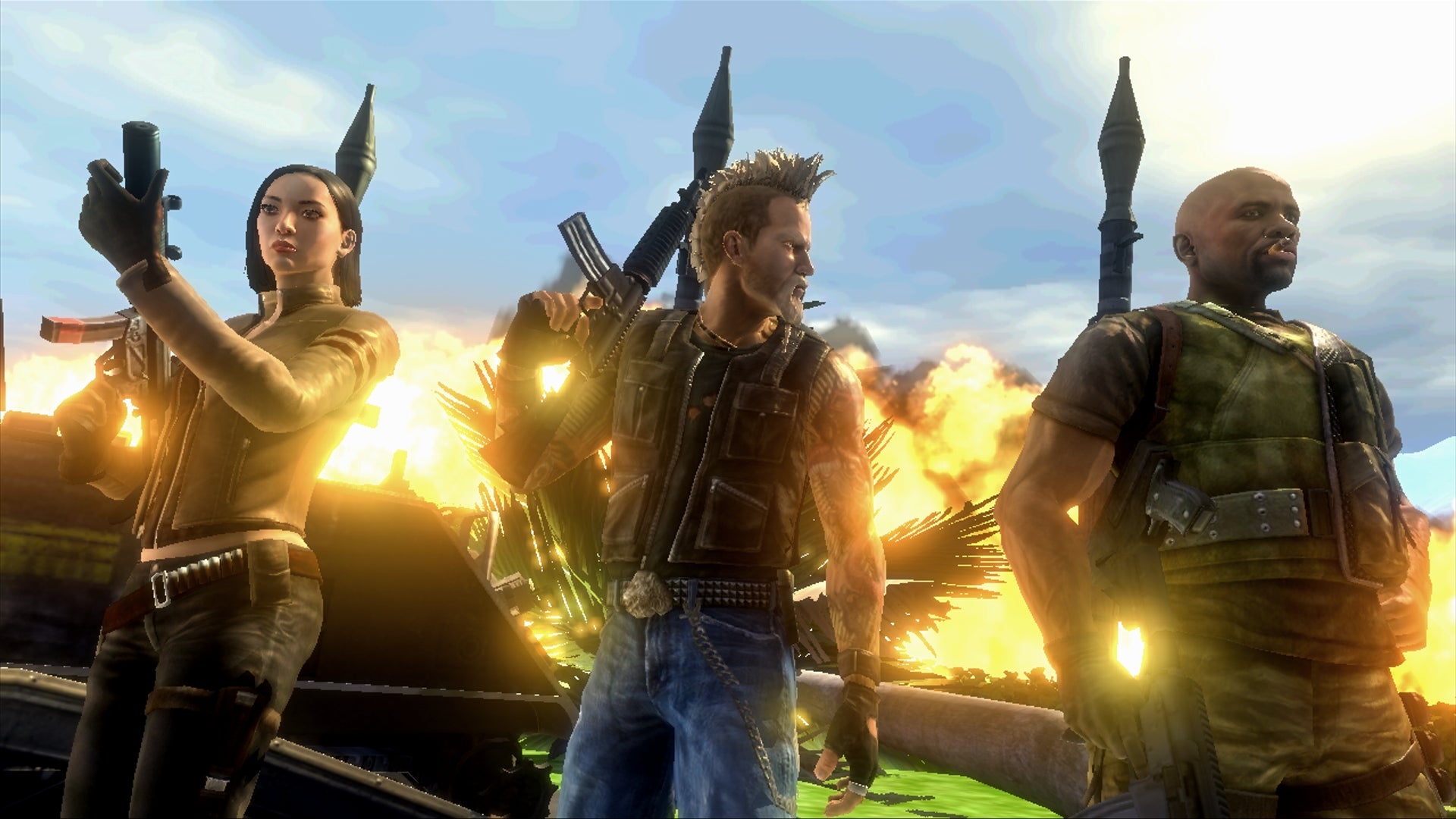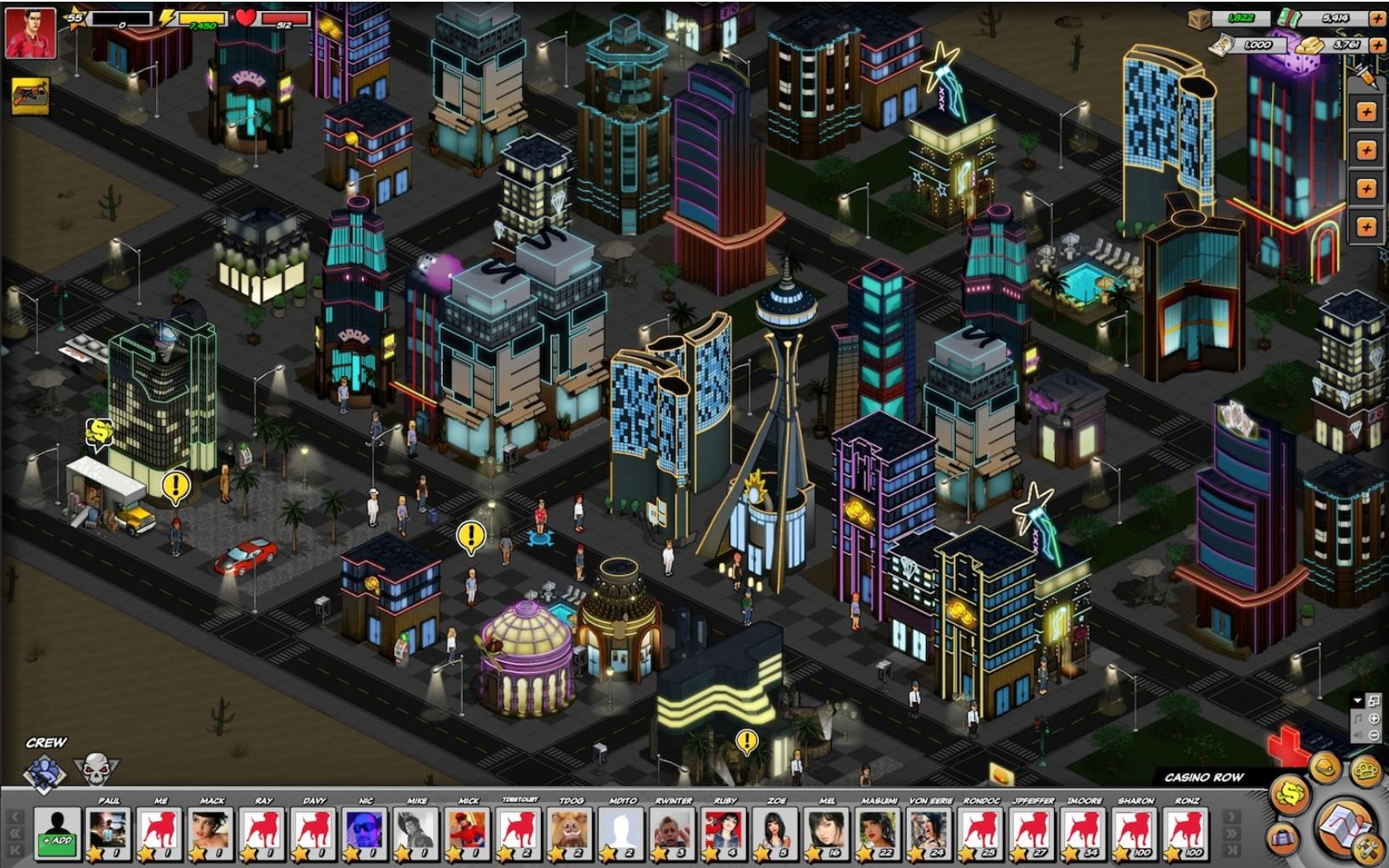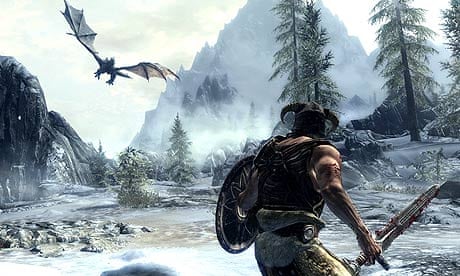 Our World
Our World  Our World
Our World  Pop Culture
Pop Culture 10 Incredible Female Comic Book Artists
 Crime
Crime 10 Terrifying Serial Killers from Centuries Ago
 Technology
Technology 10 Hilariously Over-Engineered Solutions to Simple Problems
 Miscellaneous
Miscellaneous 10 Ironic News Stories Straight out of an Alanis Morissette Song
 Politics
Politics 10 Lesser-Known Far-Right Groups of the 21st Century
 History
History Ten Revealing Facts about Daily Domestic Life in the Old West
 Weird Stuff
Weird Stuff 10 Everyday Products Surprisingly Made by Inmates
 Movies and TV
Movies and TV 10 Actors Dragged out of Retirement for One Key Role
 Creepy
Creepy 10 Lesser-Known Shapeshifter Legends from Around the World
 Our World
Our World 10 Science Facts That Will Change How You Look at the World
 Pop Culture
Pop Culture 10 Incredible Female Comic Book Artists
 Crime
Crime 10 Terrifying Serial Killers from Centuries Ago
Who's Behind Listverse?

Jamie Frater
Head Editor
Jamie founded Listverse due to an insatiable desire to share fascinating, obscure, and bizarre facts. He has been a guest speaker on numerous national radio and television stations and is a five time published author.
More About Us Technology
Technology 10 Hilariously Over-Engineered Solutions to Simple Problems
 Miscellaneous
Miscellaneous 10 Ironic News Stories Straight out of an Alanis Morissette Song
 Politics
Politics 10 Lesser-Known Far-Right Groups of the 21st Century
 History
History Ten Revealing Facts about Daily Domestic Life in the Old West
 Weird Stuff
Weird Stuff 10 Everyday Products Surprisingly Made by Inmates
 Movies and TV
Movies and TV 10 Actors Dragged out of Retirement for One Key Role
 Creepy
Creepy 10 Lesser-Known Shapeshifter Legends from Around the World
10 Bizarre Video Game Marketing Campaigns
Marketing is the lifeblood of sales. Unless a brand has already established itself as a dominant force in the market, it will be difficult for the public to react positively to its product launch without some form of marketing.
Sometimes, products perform well in the market solely because of an optimized marketing effort. This is the reason why every industry invests in marketing. In the world of video games, there have been successful and unsuccessful marketing campaigns. What we are, however, not prepared for are bizarre marketing campaigns. These marketing efforts are very strange and far from the usual. Some of these campaigns were so unusual that they attracted criticism and even law enforcement.
Here are ten of the most bizarre video game marketing campaigns.
Related: 10 B.S. Myths We Believe Because Of Advertising
10 Call of Duty: Black Ops III Issues Fake Terror Alert
The makers of Call of Duty went too far when they live-tweeted that a terror attack was taking place in Singapore. The false claim was only a publicity stunt to introduce their new game Call of Duty: Black Ops III. First, it is very unusual for a video game maker to make false terrorist attack claims, but what we find more bizarre is that this extraordinary publicity stunt was totally unnecessary. Call of Duty was already a successful video game franchise.
The marketing campaign backfired quickly, with many people responding on Twitter that the publicity stunt was in poor taste. Most people would agree that the video game maker could have done better, considering terrorist attacks do take place in the real world, and the fear of terrorism exists all over the world. There is no doubt that this marketing campaign was downright bizarre.[1]
9 Electronic Arts Causes Gridlock in London with Mercenaries 2: World in Flames

The plot of the game Mercenaries 2: World in Flames is straightforward. The protagonist’s aim is to kill the President of Venezuela. Since the plot of the game also involves Venezuelan oil facilities, the marketers of the game actually tied the game to a physical gas station, or maybe they were trying to set the world aflame for real—we may never know for sure. One thing we know is that there was a marketing stunt to promote the game that involved £20,000 worth of free fuel at a single gas station.
The line of cars going to this gas station was very long, and drivers started having altercations. Each driver received £40 of free fuel from the marketers of the game. It didn’t take long before police shut down Electronic Arts’ operations due to the ensuing chaos. In fact, a member of the British Parliament demanded an apology from Electronic Arts, claiming that the video game publishers were trying to cause Venezuelan-style fuel riots in London. Any marketing campaign that gets the attention of the police and triggers a request for an apology from an MP is an unusual one. This is the most considerate way we can tag the promotion.[2]
The previous week, the same promo seemed to have gone off without a hitch in the U.S. A La Cienega Blvd. gas station in Los Angeles saw actors hired as mercenaries with signs offering the free gas and helping with directing cars.
8 Zynga Vandalizes City Sidewalks with Counterfeit Money

Despite being an online game heavyweight, Zynga let us down with its ridiculous attempt to promote the game Mafia Wars. The company glued fake promotional bills to the sidewalks of Manhattan. This is nothing but vandalization of public property. At one point, the San Francisco City Attorney’s office had to open an investigation into the ignominious act. Besides the counterfeit money Zynga put into circulation, marketers also produced decals depicting gang violence to market the video game. They also glued the bills to the sidewalks in Manhattan, even after receiving a rebuke for the stunt in the City by the Bay.
The Deputy City Attorney called the marketing campaign “illegal and actionable.” Not mincing words about this incident—any marketing campaign that warrants rebuke from the City Attorney’s office is an odd campaign. [3]
7 Electronic Arts Stages Protest Against Its Own Game
Just when we think that we have seen the worst of it, we are confronted with another weird video game promotion strategy that we cannot wrap our heads around. This is the second time we find Electronic Arts on our list for a similar reason. In 2009, the game publisher hired a group of 20 fake protesters to demonstrate outside the Electronic Entertainment Expo in Los Angeles to protest the upcoming game Dante’s Inferno.
The most ridiculous thing about this incident is that these fake protesters found the perfect excuse to stage their protest—religion! According to these jokers, the upcoming game glorified eternal damnation. The fake protesters held up picket signs asking people to “Trade in Your Playstation for a Praystation.” In a strange twist of events, Electronic Arts turned around to admit that the protest was fake and staged by their marketing agency.[4]
6 Splinter Cell: Conviction Roleplay Leads to Police Intervention

Splinter Cell: Conviction is an action-adventure game that emphasizes stealth; however, the promotional stunt for the game went too far and nearly led to death. In Auckland, New Zealand, a man with bandages on his hand threatened the patrons of a bar with a fake gun, and police were immediately called to the scene. What we find very bizarre about this particular marketing campaign is that even the police officers that responded could not immediately determine that the gun being brandished by the promotions worker was fake until it was retrieved from him.
We find ourselves asking some questions: what if the police had been trigger-happy and fired at sight? What would have happened to the promotions worker? Is death a justifiable end for a video game marketing campaign? No matter how hard we tried, finding an answer wouldn’t be an easy task. But we are certain that this video game promotion effort is far from the usual.[5]
5 Bethesda Wants to Give a Baby a Dragon-Themed Name

Bethesda is the video game company that produced the game The Elder Scrolls V.Skyrim. The company announced a contest for any child born on the day the game was launched. The catch was the parents had to name the child “Dovahkiin,” which translates to “Dragonborn” in dragon language. If the parents did this, the child would win Bethesda games for life. Coincidentally, parents Megan and Eric Kellermeyer welcomed their baby on November 11, 2011, at 6:08 pm—the same day the game was launched. And as they longed to give their baby a unique name, the contest just happened to have been announced at the most appropriate time.
You can’t deny this might be a marketing campaign taken too far. It is downright bizarre that a company would encourage parents to burden their child with such a name. While we can’t guess exactly what was going on in the minds of Megan and Eric Kellermeyer, whatever was in there was absolutely unusual. Can you hear the teasing on the playground already? However, it shouldn’t surprise you that this campaign has been done before. In 2018, KFC offered a college scholarship for the first child born on Colonel Sanders’s birthday to be named Harland (the Colonel’s first name). So now little Harland Rose will have money when she’s old enough for college. Well, at least it wasn’t Dovahkiin. Poor kid![6]
4 Resident Evil 6 Experiments with a Weird Meat
In order to promote Resident Evil 6, Capcom, the company that produced the game, decided to embark on a very unusual promotional tactic. This promo involved the creation of a butcher shop with meat that looked like human flesh. The butcher shop was called “Wesker & Son.” The meat on sale was actually edible animal meat carefully constructed by a food artist to look like human body parts. The butcher shop was open for two days before it closed.
There is another bizarre development relating to the launch of Resident Evil 6. The first marketing stunt involved the creation of fake murder scenes in front of popular media businesses in London.[7]
3 Acclaim Painted Pigeons for Virtua Tennis 2
Acclaim used a weird and unusual marketing stunt to introduce its game, Virtua Tennis 2, to the world. The company painted homing pigeons with the game’s logo and released the pigeons over Wimbledon. This particular marketing campaign was directed at tennis enthusiasts, considering the chosen venue. Although Wimbledon is already famous for the occasional descent of pigeons, this would be the first time that people would get to see a painted pigeon, especially one that bears a message.
Some will never forget this unusual advertisement stunt. If only video game marketers used their power for good instead of painting the poor, innocent pigeons.[8]
2 Acclaim Offers to Pay Parents to Name Their Child Turok
![Review] Revisiting 'Turok Dinosaur Hunter' on Nintendo Switch is Surprisingly Pleasant - Bloody Disgusting](https://bloody-disgusting.com/wp-content/uploads/2019/03/turok-dinosaur-hunter-review-header.jpg)
Acclaim is here again! The New York-based video game publisher started a contest, offering $10,000 to the first parent to name their newborn child after the dinosaur-slaying hero in its upcoming game Turok: Evolution. In order for the parent(s) to qualify for the prize, the child must be named Turok. There is an understandable reason why we consider this a bizarre form of marketing—the poor child is saddled with the name and has to answer to it. Makes you wonder what’s going on in the minds of these parents.
It’s also worth noting that Acclaim Entertainment as a company has gotten excellent results from such unconventional marketing efforts before this particular move. In the same month that the company announced the “Turok” challenge, it received thousands of responses when it offered £500 and an Xbox game console to anyone in Britain who was willing to change their legal name to Turok. We’ll never know if these people were in love with the name or just keen to take any prize, no matter how small.
Surprisingly, an Acclaim spokesman, Alan Lewis, said that the unusual promotional tactic was the only way to survive in the world of video games because of the stiffening competition. In 2020, a staff writer for VG247 decided to track down the five people who were reported to have received the prize money. After numerous dead ends, he stumbled upon the truth. All five people were actors who had been paid to claim they had changed their name. No one actually had done it. But still, it garnered a lot of buzz at the initial campaign rollout.[9]
1 Mass Effect 3 Discs Shot into Space
This is the most unusual of them all and deserves the number one spot. Electronic Arts gave fans of the game Mass Effect 3 the opportunity to play the game early in a unique way. The first copies of the game were carried up into space by weather balloons which later released them. People on the ground could track the falling games thanks to attached GPS devices.
Fans could also monitor where the nearest game landed. The targeted cities were New York, Las Vegas, San Francisco, Berlin, London, and Paris. What a fan needed to do to get any of the copies was to create an EA (Electronic Arts) online account, then track down copies of the game as they fell to Earth using EA’s GPS system. Once the game landed, it became an open race. The first set of fans to get to the landing sites would get all the available copies on a first-come basis. While we commend Electronic Arts for this exceptional display of technological proficiency, we find it downright bizarre that a video game company would send video games to outer space.[10]








